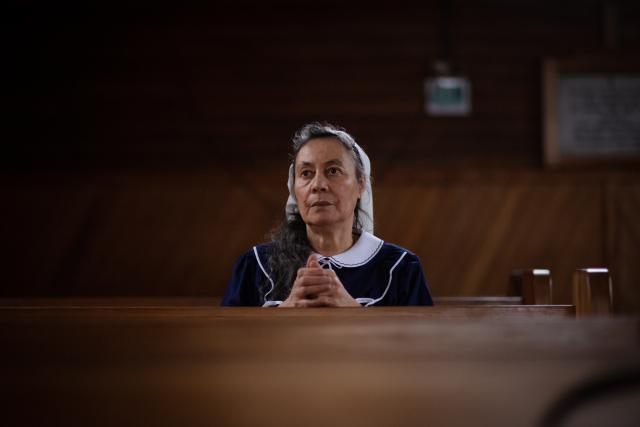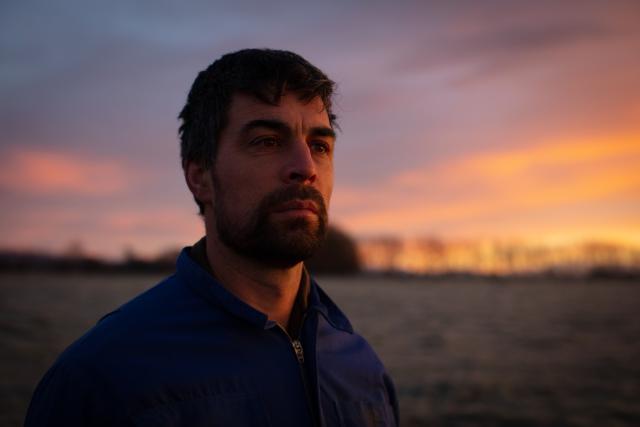On the surface, Gloriavale appears to be a utopia for their 600 faithful members but dig a little deeper and things start to get murky.
In what could be the blueprint for The Handmaids Tale, the gripping expose of New Zealand’s most infamous and secretive religious group founded by Australian evangelist Neville Cooper, has quickly become one of the most talked about films of the year and New Zealand’s highest grossing local documentary.
Exploring the secretive community through never before seen home video footage, filmmakers Noel Smyth and Fergus Grady follow the Ready family as they mount a ground-breaking legal case against the cult’s powerful leaders.
The critically acclaimed documentary, Gloriavale, will have a special Q and A screening with the directors at Noosa Film Society on Monday 7 November at 10am and 6.30pm.
Noosa Today had the chance to speak with Noel and Fergus ahead of the screening to get an insight on the two years they spent creating the film.
Had you heard of the secretive religious group before being approached by human rights investigator Steve Patterson?
NOEL: Being in Australia, I had never heard of Gloriavale and I think that was probably the most interesting thing for me when Steve first reached out to us and asked if we knew about this cult with 600 people that’s been going for 50 years. For me it was shocking that this sort of thing could be happening so close to home. Whenever I think of cults, I think of America. To hear that this thing was happening in New Zealand was really fascinating.
A two year turn around is pretty quick. Can you tell us why you wanted to get the film out as soon as possible?
FERGUS: We went back and forth debating whether we should follow the story for the next 10 years, because it’s a lengthy story and there’s so many different court cases going on, that it could well go on for the next 10 to 20 years. In the end, it was about what’s going to make the most impact for people in there right now and for the survivors that are outside trying to get their families.
How did you allow the characters to feel comfortable enough to discuss their stories on camera? Did it take a lot of convincing?
NOEL: Everyone in Gloriavale gets brought up believing that the media is the devil and the worst people you could talk to. The worst thing you could do is speak out against Gloriavale and the leadership. So we knew that to get anybody on side, we had to keep a small footprint. Most of the time filming it was either Fergus working with our New Zealand cinema photographer or me just kind of on my own. And that definitely helped. It’s much easier to slip into someone’s daily life if you don’t have a big crew there.
How did you feel when Sharon Ready reached out to speak, considering she is still living in the community?
NOEL: We’d seen her and we just thought there would be no way she would speak to us because the Sharon we met back then was a very timid, very shy woman that you could quite clearly see the effects of living inside of Gloriavale under this patriarchal community structure. The change in her at that point to when she reached out to share her story was huge. She’s just continued to change and it’s amazing to see.
Did you hear from any of the cult leaders while filming or after the release?
FERGUS: No, we only had a couple of emails late in the piece kind of asking for more notice but we referred them to an earlier email that we sent two years ago asking for access. We always knew we would make this without their involvement. We would have liked to have them on camera but it’s just the way they operate. They don’t trust anyone aside from the select few leaders.
Were you ever scared throughout the filming process?
NOEL: They’re not a violent community, but what they are is really cashed up. They have such deep pockets and they’re so well resourced with smart, expensive legal teams. Our biggest worry was that we would go bankrupt making the film or we would get sued because that is what they tend to do. It was a stressful process but we got there in the end.
Why should the Noosa community step out to see Gloriavale?
FERGUS: Noel and I have connections to Queensland. My parents live in Noosa and Noel grew up in Bundaberg. It’s important that the public get to see such an important story. If people can’t see it at the one screening in Noosa, they can jump on our website and find another screening happening soon or contact their local cinema and request another screening.
NOEL: I think people will be shocked to learn about what’s going on. Sitting in with audiences, there’s so many moments of audible gasps. People are furious coming out of it. Which is what we wanted people to feel, because it’s what we felt.
Meet Noel Smyth and Fergus Grady at a special Q and A screening of Gloriavale at Noosa Film Society on Monday 7 November at 10am or 6.30pm. For more information visit gloriavale.com










